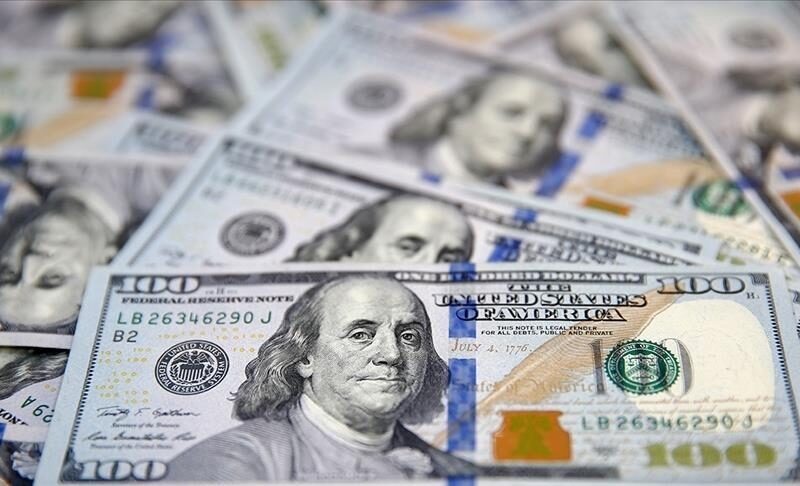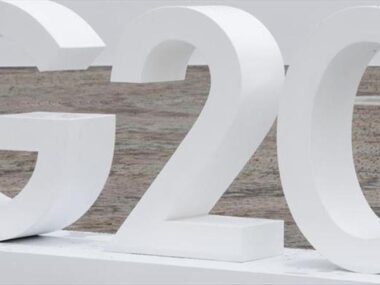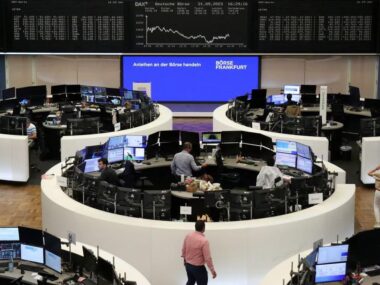While the ECB predicts a comeback in inflation, the Fed is projected to lower interest rates starting in H1 of next year.
Markets anticipate that the Fed will complete its two-year cycle of aggressive policy at a final interest rate of 5.25–5.50%.
Forecasts, however, indicate that the Fed would begin reducing the policy rate in June of next year, which would cause the bond markets to follow a buying-weighted path when the yield on the US 10-year bond was balanced at 4.40%.
Macroeconomically, new home sales in the US were reported on Monday, and they were below market forecasts, falling by 5.6% on a monthly basis to 679,000 in October.
Under pressure from anticipation that the Fed may begin reducing interest rates in the first half of next year, the dollar index also dropped 0.2% to 103.2.
On Monday, the price of an ounce of gold reached $2,018—its highest level since May.
Amidst the two-day extension of the humanitarian ceasefire between Israel and Hamas, the price of a barrel of Brent oil was stable at $79.8, continuing the downward trend for the fifth straight working day.
The Dow Jones index fell by 0.16%, the S&P 500 index by 0.2%, and the Nasdaq index by 0.07% on Monday’s New York stock exchange.
US index futures contracts started the day with mixed results.
Despite Monday’s sales-heavy day on European stock markets, Christine Lagarde, the governor of the European Central Bank, indicated that headline inflation in the Eurozone would rise in the upcoming months.
Lagarde emphasized that they anticipate salaries to remain the primary driver of domestic inflation and that wage pressures are still very high.
Although the base impact could cause the headline inflation to slightly increase in the upcoming months, Lagarde anticipates a weakening of inflationary pressures.
Lagarde did, however, emphasize that there are still a lot of significant unknowns around the medium-term inflation picture.
Following these remarks, analysts said, attention shifted to the inflation statistics that would be released in the area this week.
The FTSE 100 index in the UK fell by 0.37%, the DAX 40 index in Germany by 0.39%, the CAC 40 index in France by 0.37%, and the MIB 30 index in Italy by 0.31% on Monday.
Index futures contracts in Europe started trading on Tuesday based on sales.
With the exception of South Korea, Asian markets declined on Tuesday. However, analysts noted that profit sales contributed significantly to the region’s sales pressure.
The Shanghai composite index in China declined 0.1%, the Kospi index in South Korea rose 1%, the Nikkei 225 index in Japan fell 0.2%, and the Hang Seng index in Hong Kong fell 1.1% near the close.
The BIST 100 index in Borsa Istanbul closed the day at 8,107.19 points, up 1.85% in Türkiye, after following a buying-weighted track on Monday.
The USD/TL is trading at 28.9320 at the start of the interbank market on Tuesday, having closed the day on Monday at 28.9135, up 0.2%.











